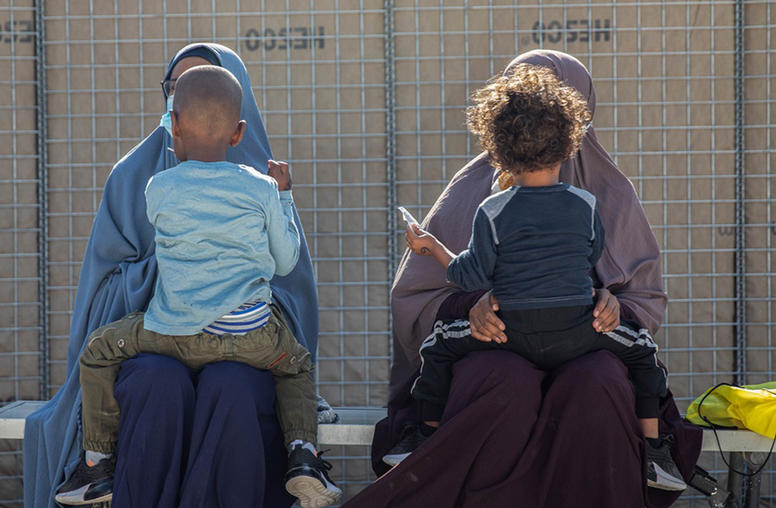On the Issues: Syria
The recent war in Gaza has again underscored the tensions involved in brokering sustainable peace in the Middle East. USIP has actively explored the critical role neighboring countries in the Middle East play in the success of creating peace throughout the region. In this "On the Issues," USIP presents a collection of resources and tools about the role of Syria in peacebuilding efforts. Building upon the foundation started in 2005 with the Syrian Working Group, USIP has held a number of recent events, activities, and programs resulting the development of some recent resources.
The recent war in Gaza has again underscored the tensions involved in brokering sustainable peace in the Middle East. USIP has actively explored the critical role neighboring countries in the Middle East play in the success of creating peace throughout the region. In this "On the Issues," USIP presents a collection of resources and tools about the role of Syria in peacebuilding efforts. Building upon the foundation started in 2005 with the Syrian Working Group, USIP has held a number of recent events, activities, and programs resulting the development of some recent resources.
-
"Iraq, its Neighbors, and the Obama Administration: Syrian and Saudi Perspectives"
USIP's "Iraq and its Neighbors" initiative has, since 2004, sponsored dialogues and ongoing research on relations between Iraq and its six immediate neighbors. As part of this work, USIP -- in partnership with the Stimson Center -- sponsored a bipartisan, independent, and unofficial Study Mission to Syria and Saudi Arabia in mid-January 2009. The delegation met with a wide variety of leading political figures, businesspeople, NGOs and foreign policy experts in both countries, including President Bashar Assad of Syria and Prince Turki al-Faysal of Saudi Arabia. The top concern for both Riyadh and Damascus remains blowback from Iraq: the ascendance of ethnic and sectarian identity and the spread of Islamic militancy. The need to contain this threat is the dominant force that shapes both Syrian and Saudi Arabian relations with Iraq. Both countries have a vital interest in ensuring that Iraq's emerging political order is inclusive of Sunni Arab Iraqis, who have not yet been fully incorporated into Iraqi institutions. This February 2009 working paper represents the initial findings of the Study Mission. | Download and read the Working Paper -
"Negotiating Arab-Israeli Peace"
USIP is also actively exploring in great depth the potential U.S. role in mediating between Syria and Israel. Last year, USIP's Study Group on Arab-Israeli Peacemaking published a definitive guidebook on how to broker peace in the Middle East. The Group is following that effort with a study of options for U.S. involvement in Syrian-Israeli negotiations. As part of the research for the new book, three members of the Study Group traveled to Jerusalem in late January 2009 to conduct interviews and also participate in a State Department-sponsored conference on "60 Years of American diplomacy with Arabs and Israelis" based in part on the Group’s earlier guidebook. | -
Continuing Work
In a more technical examination of how to facilitate peace between Israel and Syria, USIP will shortly release a Special Report by Fred Hof on what an Israeli-Syrian agreement would look like and how it could be implemented, including use of a Jordan Valley-Golan Heights environmental preserve to advance a durable settlement. This USIP Special Report will be published in March 2009
 Image on right: Flag of Syria
Image on right: Flag of Syria
Events
-
Options for US Mediation of an Israel-Syria Peace Process
On February 6, 2009, USIP held a public event on prospects for an Israeli-Syrian peace process. An expert panel explored Israeli and Syrian interest in engaging in a new round of negotiations, and options for the U.S. to mediate a resolution. The panel also considered what role Turkey could play in building on the momentum of the proximity talks, and implications of the process for future engagement with Iran and for the wider Arab-Israeli peace process. One recurring theme of the discussion was that a U.S. role in facilitating talks was essential, and the panelists suggested a number of measures that the U.S. and Syrian governments could take to build confidence and signal willingness to reengage each other. | Listen to audio from this event



